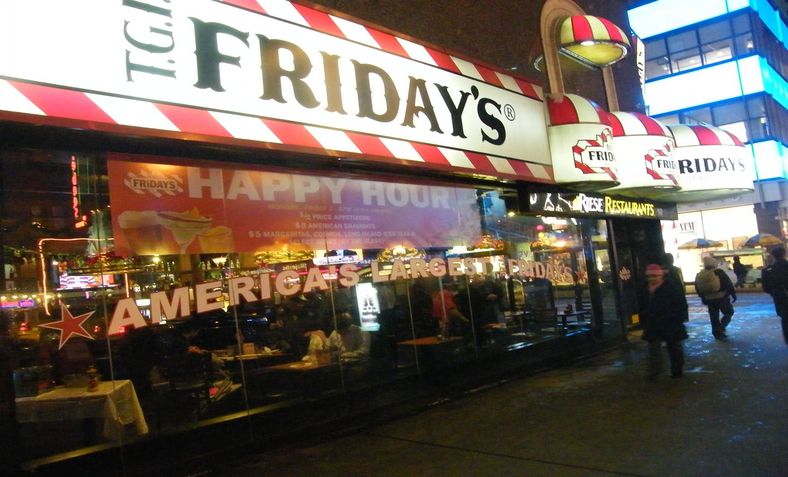 TGI Friday's. Photo: Wikimedia Commons
TGI Friday's. Photo: Wikimedia Commons
Richard Allday reminds us that we need to work together; we can’t be socialists on our own
At first sight, the common thread between the construction workers’ fight against the union-busting BESNA campaign 7 years ago and the strikes at McDonald’s (and TGI Friday) this year may seem slender: workers fighting for decent treatment, against low pay, confronting intransigent employers inherently hostile to trade unionism. And, of course, both the construction and catering industries begin with the letter ‘C’.
Scratch the surface however, and they share a number of other characteristics. Although catering workers are often described as being part of the ‘gig economy’, this is just fancy jargon for precarious work, with little security on offer in terms of hours of work, or even continued employment. If your face doesn’t fit, the hours dry up. If you push for decent working conditions, the hours dry up.
There are many, many, construction workers who can identify with this. Temporary employment; uncertain hours; agency labour; – actually the conditions of employment have much in common. Added to this is the difficulty of organising a collective voice among your fellow workers, when to be branded a ‘trouble-maker’ may not just end that job, but leave you marked out as ‘do not touch’ to other employers as well. Construction workers know all about the blacklist, and the same disgusting ploy obtains in catering as well.
Which is why the courage and resilience of the sparks who fought BESNA, and the McDonald’s and TGI Friday workers taking strike action today should be applauded by any socialist and trades unionist worthy of the name.
But there is one other strand these two groups of workers hold in common. In both cases, the fact that there were socialists in those industries was crucial. Workers who realized that the problem was not individual ‘bad eggs’ among the employers, but that there was a fundamental class divide that separated the interests of the employers from the employed, that the bosses’ profits depended on workers being divided, firm from firm, site from site, skill-set from skill-set. Knowing this, they organized to break down these divisions.
When the construction workers rank and file committee called the meeting in Conway Hall, they didn’t restrict it to employees of the BESNA firms, they called on all construction workers who opposed the contractors. Whether you were a trade union member or not, whether you worked for Costains or McAlpines, or Fred Grommett (Electrical Contractors), the real question was: are you prepared to fight?
When the MaccyD workers in Crayford and Cambridge struck, they asked for support from across the local labour movement (and got it). When the TGI Friday workers launched their protest outside the Covent Garden site, they invited Macdonald workers, and bigged up the McD strikes. In all these cases, the activists involved realized their struggle could only gain from reaching out and generalizing; that to take a purely parochial position was to play into the bosses’ hands.
This is fundamental to a socialist perspective. Being a socialist is not about holding some deep analysis of politics and economics in grand isolation. As Karl Marx said ‘Philosophers have hitherto interpreted the world. The point is to change it’. Or as Lenin rather more prosaically put it: “The truth is concrete”.
By which he meant that the world is not changed by fine ideas, unless those fine ideas are used to generate action.
This is why socialists have always argued the need for collective organization. You can’t be a socialist on your own. It is a contradiction in terms. That is why Counterfire consistently argues that if you agree with our analysis, don’t sit in glorious isolation, satisfied that someone else thinks the way you do – get in touch, act in concert; together we can change the world.
Just do it.

